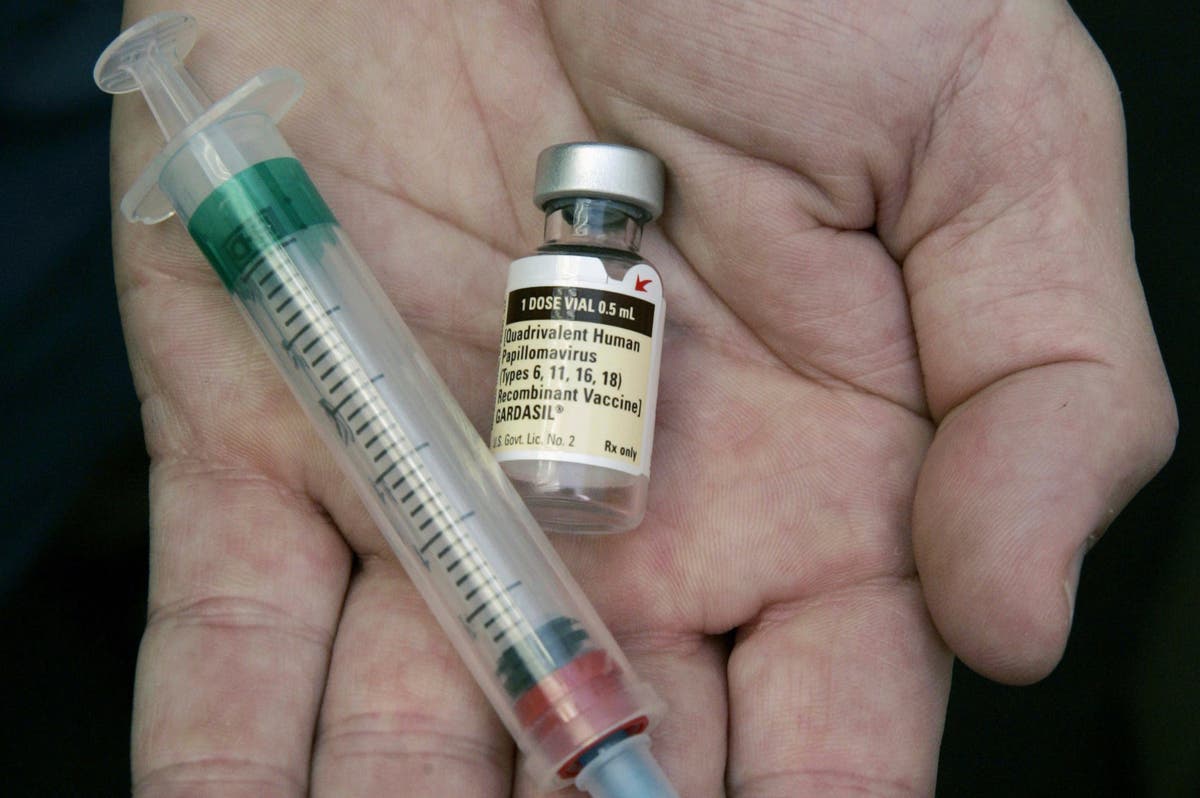The world’s first vaccine to prevent ovarian cancer is being developed in the UK and could save thousands of lives, eventually wiping out the disease, researchers claim.
Scientists at the University of Oxford are creating OvarianVax, a vaccine that teaches the immune system to recognise and attack the earliest stages of ovarian cancer.
The hope is that the jab could be given to women preventatively on the NHS with the aim of eliminating the disease, which kills around 4,100 women in the UK each year.
Cancer charities have hailed the research as having the potential to save thousands of lives, and to save women with a BRCA gene mutation from having to have their ovaries removed.
The news comes after announcements earlier this year that scientists at the University of Oxford had secured funding to develop a vaccine that could prevent lung cancer.
Experts have likened the potential impact of OvarianVax to that of the HPV vaccine, which is on its way to eliminating cervical cancer.
Professor Ahmed Ahmed, director of the Ovarian Cancer Cell Laboratory at the MRC Weatherall Institute of Molecular Medicine at the University of Oxford, said he hoped patients in clinical trials could benefit within four to five years, but added that it would take “many years” for the vaccine to come into general use.
Prof Ahmed said that “while the full-blown timeline” for a vaccine being approved “might be many years away”, the “impact that it would have, if it’s successful, would hopefully be much sooner”.

He said that, through the clinical trials, he would hope to start seeing the impact of the vaccine “in four or five years on the healthy population”.
There are around 7,500 new ovarian cancer cases every year in the UK, with BRCA mutations accounting for around 5 to 15 per cent of these cases.
It is known that women with a BRCA mutation, such as actress Angelina Jolie, are at high risk, and it is currently recommended that those with the gene have their ovaries removed.
Prof Ahmed said that those who carry a BRCA mutation could benefit greatly from the new vaccine because “they wouldn’t then have to have their ovaries removed”.
Cancer Research UK is funding the study, providing up to £600,000 over the next three years.
Dr Claire Bromley, research information manager at Cancer Research UK, told The Independent that while it would take “many years” for a vaccine to become readily available to the general population, the study signalled progress towards preventing cancer.
Dr Bromley said: “A few decades ago, the idea of a cancer vaccine was science fiction. You would have seen treatment vaccines, which are starting to come into the clinic; now we’re starting to see more preventative cancer vaccines. There is also one being developed for lung cancer.
“A lot of these vaccines are building on technology built during Covid-19, which accelerated that work.
“We’re moving into an area where cancer as a disease could become much more preventable… it is far much more of a reality.”
Marie-Claire Platt, head of research at charity Ovarian Cancer Action, said: “Over 1,000 women every year are diagnosed with ovarian cancer which should have been prevented. Since the discovery of the faulty BRCA gene, we’ve known that some women have a much higher risk of developing ovarian cancer. This research could finally offer these women the chance to reduce their risk without life-changing surgery.
“Over the last decade, Ovarian Cancer Action has been funding research led by Professor Ahmed to understand where and how ovarian cancer starts. This project will translate those discoveries into a vaccine that could save thousands of lives.”
Professor Ahmed and his team are identifying cellular targets for the vaccine. They will establish which proteins on the surface of early-stage ovarian cancer cells are most strongly recognised by the immune system, and how effectively the vaccine kills mini models of ovarian cancer in the lab.
They will then move on to human clinical trials in people with BRCA gene mutations – which massively increase the risk of ovarian cancer – and healthy women in the general population to see if the disease could be prevented.
Prof Ahmed said that, if the jab is successful, he would expect to start seeing an impact within the next five years.
Asked if ovarian cancer could be wiped out with the new vaccine, he said: “Absolutely – that would be the aim. We still have a long way to go, but it is a really exciting time. I’m very optimistic, myself.”
Scientists hope the vaccine they create will train the immune system to recognise more than 100 proteins on the surface of ovarian cancer cells, known as tumour-associated antigens. Once the vaccine has been created in the lab, they will then move to testing it in patients with the disease.
The next stage would be to include women with BRCA mutations, alongside women from the wider population without known disease, to see whether the vaccine would be suitable for both of these groups in preventing ovarian cancer.

